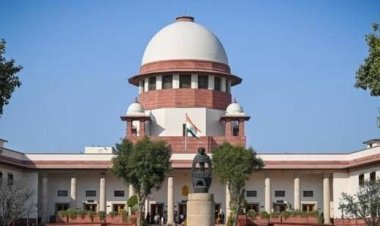Despite Political Dominance: Mandi Struggles for Progress

During my recent visit to Mandi, a lingering thought kept haunting me: what has prevented this town from experiencing development? Mandi, a tehsil in the Poonch district, has always been politically dominant, yet it remains a place where progress seems elusive. Despite producing numerous leaders, including MLAs, MLCs, MPs, and now BDCs and DDCs under the three-tier system in Jammu and Kashmir, the people of Mandi continue to languish, far removed from the development they rightfully deserve.
One of the most pressing issues in Mandi is its inadequate health infrastructure. Local facilities suffer from chronic shortages of staff and essential resources, leaving the public frustrated and deprived of proper healthcare. Even minor ailments require immediate referral to Poonch. Peripheral health centers are in dire need of improvement, lacking basic amenities, and the absence of an efficient transportation system exacerbates the situation. The poor condition of roads compounds the problem, making it risky for public transport vehicles to navigate the area. Overloaded buses and reckless driving have resulted in numerous accidents, claiming countless lives. The roads from Mandi to Loran and Mandi to Sawjian are particularly notorious for their dilapidated state.
Education is another sector suffering in Mandi. Many schools lack adequate infrastructure and teaching staff. Although some schools are currently undergoing repairs and upgrades through the SAMAGRA Scheme, the education system as a whole is ailing, with numerous underlying issues that require immediate attention. The lack of resources in rural areas forces students to rely on government schools, which often fail to meet the standards of quality education. Those who can afford it may choose to migrate to other cities for better educational opportunities, leaving the less fortunate without access to a decent education.
On the other hand, tourism presents a potential avenue for development and economic opportunities for the unemployed youth of Mandi. The town boasts several breathtaking locations, such as Sawjian, Loran, Nandi Chhool, Sultan Pathri, and Jabbi Toti, which could be developed for eco-tourism. Additionally, there are religious sites like Bidha Amarnath and Batalkote Zayarat that attract pilgrims. By promoting sustainable tourism and preserving the environment, Mandi could tap into the potential of this sector, creating new avenues for employment and growth.
However, despite the numerous challenges faced by Mandi, the ultimate responsibility lies with its leadership. While winning elections is undoubtedly important, true leadership extends beyond mere electoral victory. It entails winning the hearts of the people through visionary ideas for development. Unfortunately, many leaders from Mandi have failed to collectively bring about the progress the town so desperately needs. For some, Mandi appears to be nothing more than a fleeting campaign stop during election seasons. Some leaders seem to function as rubber stamps, holding onto their positions solely to secure their electoral ground, without making a tangible difference in the lives of the common people.
The development paradox of Mandi is a complex issue that requires immediate attention and concerted efforts from all stakeholders. The government must prioritize the town's healthcare infrastructure, investing in adequate facilities, resources, and transportation networks. Education should be a focal point, with emphasis placed on improving school infrastructure and providing quality teaching staff. Moreover, the untapped potential of tourism should be harnessed through sustainable development, creating employment opportunities for the local youth.
It is high time for the leaders of Mandi to rise above political considerations and work in unison to bring about meaningful change. By focusing on the development of the town and addressing the long-standing issues, they can truly fulfill their duty of serving the people who elected them. Only through collective efforts and a genuine commitment to progress can Mandi transform into the thriving and prosperous town it has the potential to be.









